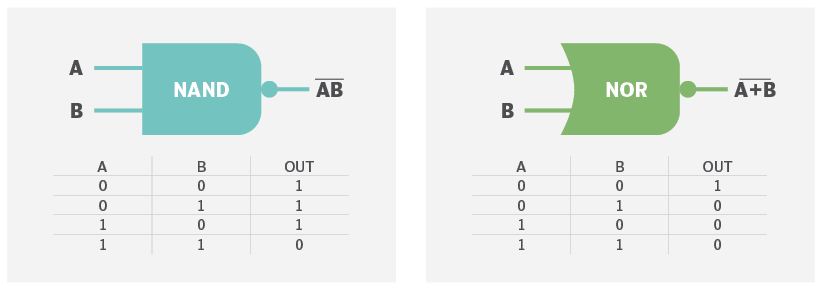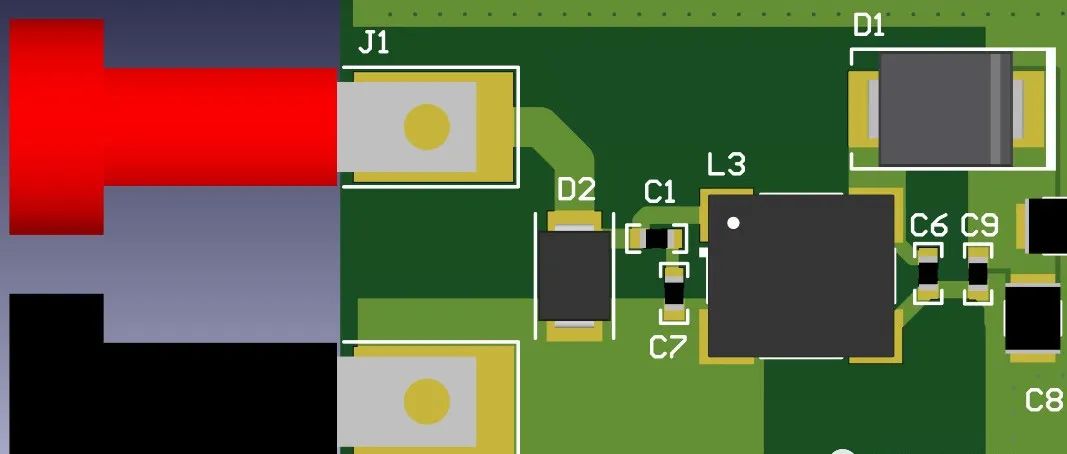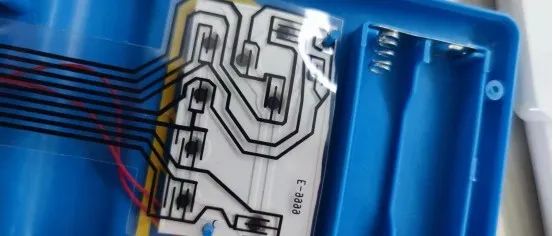NAND Flash and NOR Flash are two common types of flash memory.NOR Flash was first developed by Intel in 1988, changing the landscape that was previously dominated by EPROM and EEPROM.NAND Flash was released by Toshiba in 1989, emphasizing lower cost per bit, higher performance, and the ability to be easily upgraded through interfaces like disks.

Figure: NAND=NOT AND (NAND gate), NOR=NOT OR (NOR gate)
Similarities
Both are non-volatile memory types that can retain stored data after power is lost.Both can be erased and reprogrammed.
Both require erasure before writing; erasure sets all bits to 1, while write operations can only change 1s to 0s.
Differences
NOR Flash and NAND Flash each have their advantages and application scenarios, allowing designers to choose based on product requirements. The main differences between the two are as follows:
- Interface
NOR Flash features a universal SRAM interface, making it easy to connect to the CPU’s address and data buses, with low interface requirements for the CPU.
NAND Flash uses complex I/O ports for serial data access.
- Capacity and Cost
NOR Flash has a smaller capacity and is more expensive.NAND Flash has a simpler production process, larger capacity, and lower cost.
- Reliability
Bad blocks in NAND Flash are randomly distributed, requiring an initialization scan of the medium to identify and mark bad blocks as unusable.NOR Flash essentially has no bad block issues.
- Endurance
The maximum erase/write cycle for each block in NAND Flash is 100,000 times.The erase/write cycle for NOR Flash is 1,000,000 times.
- Read/Write Erase Performance
NOR Flash has a faster read speed compared to NAND Flash.
NAND Flash has significantly faster write and erase speeds than NOR Flash.In summary, NOR’s advantages lie in random read and erase endurance, making it suitable for storing code and critical data; NAND’s advantages lie in cost per bit, allowing for larger capacities at the same price.「Sharing Hardware and Electronic Technology Insights」」
「Recommended Reading 👇 Click the image to jump」
Why connect two capacitors in series at the power port? Why is the value 1000pF?

Disassembling a Tetris handheld game console sold for 9.9 yuan with free shipping to Africa! When scaling production, this approach keeps costs extremely low!
Support the author with a one-click triple action 👉 Share ↓ Like ↓ View ↓